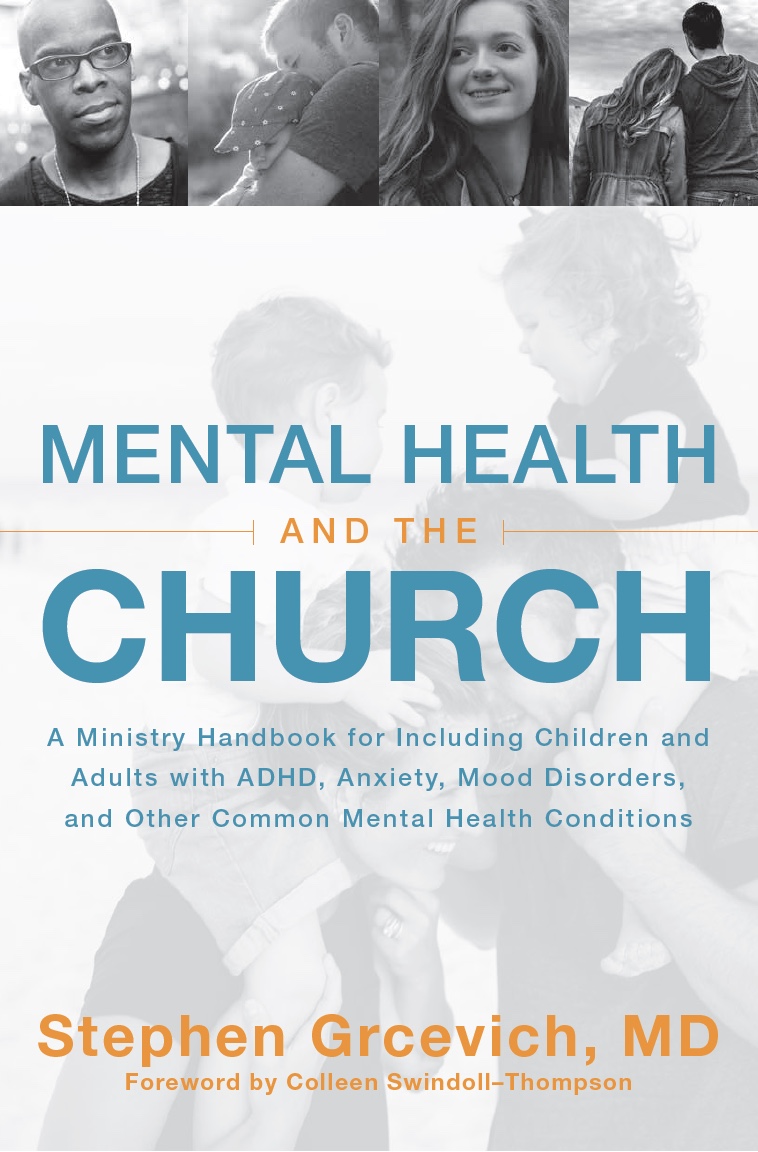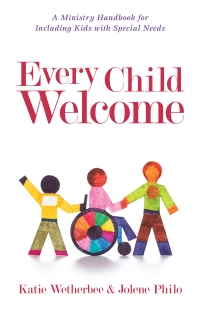 In our tenth and final segment of our series, Ten Things I Wish Church Leaders Knew About Families and Mental Illness, we’ll look at one of the most compelling reasons for churches to pursue intentional outreach to families impacted by mental illness…the reality that the church is incomplete without the gifts and talents of the kids and families in their surrounding communities who don’t know Jesus and don’t have a local faith community to call home.
In our tenth and final segment of our series, Ten Things I Wish Church Leaders Knew About Families and Mental Illness, we’ll look at one of the most compelling reasons for churches to pursue intentional outreach to families impacted by mental illness…the reality that the church is incomplete without the gifts and talents of the kids and families in their surrounding communities who don’t know Jesus and don’t have a local faith community to call home.
For as in one body we have many members, and the members do not all have the same function, so we, though many, are one body in Christ, and individually members one of another. Having gifts that differ according to the grace given to us, let us use them: if prophecy, in proportion to our faith; if service, in our serving; the one who teaches, in his teaching; the one who exhorts, in his exhortation; the one who contributes, in generosity; the one who leads, with zeal; the one who does acts of mercy, with cheerfulness.
Romans 12:4-8 (ESV)
I’ve never come across leaders in any church who thought they had more than enough gifted volunteers to completely fulfill the God-given vision they’d received for their ministry. One of the most significant obstacles our Key Ministry team often faces in persuading churches to pursue intentional ministry to families impacted by disabilities is the fear that people with gifts and talents indispensable to other ministries in the church will be “cannibalized” by the needs of disability outreach.
The reality is that all of our churches are surrounded by people with specific gifts and talents that God intended for use by the local church. Without them, the local church is incomplete. And for many reasons we’ve discussed in this series…negative experiences of church in the past, absence of relationships with other families in the church, conditions that pose difficulties in the environments in which we “do ministry”…families impacted by mental illness all too often find themselves on the outside looking in. Those on the outside have gifts we desperately need.
Consider this…Do you think Rick and Kay Warren have gifts and talents that have greatly impacted the world for Christ? What about Chuck Swindoll? Or Perry Noble? Or Frank Page (former President of the Southern Baptist Convention)? All have experienced mental illness personally, or have had a child or grandchild with a serious mental illness or developmental disability. How would the church be diminished without their gifts?
As a former Chairman and now staff member at Key Ministry, I can attest that our work would be impossible without the time and talent of Board members, staff and volunteers who themselves are being actively treated for a mental health condition or have a child (or multiple children) receiving treatment. Life for each of them is not without bumps in the road, yet they serve magnificently.
Quoting from The Purpose Driven Life, God created us for community. And God intended for people impacted by mental illness to be an essential part of that community. We’re diminished without them. It’s time for the church to become more intentional about seeking them out and welcoming them into our local faith communities.
For just as the body is one and has many members, and all the members of the body, though many, are one body, so it is with Christ. For in one Spirit we were all baptized into one body—Jews or Greeks, slaves or free—and all were made to drink of one Spirit.
For the body does not consist of one member but of many. If the foot should say, “Because I am not a hand, I do not belong to the body,” that would not make it any less a part of the body. And if the ear should say, “Because I am not an eye, I do not belong to the body,” that would not make it any less a part of the body. If the whole body were an eye, where would be the sense of hearing? If the whole body were an ear, where would be the sense of smell? But as it is, God arranged the members in the body, each one of them, as he chose. If all were a single member, where would the body be? As it is, there are many parts, yet one body.
The eye cannot say to the hand, “I have no need of you,” nor again the head to the feet, “I have no need of you.” On the contrary, the parts of the body that seem to be weaker are indispensable, and on those parts of the body that we think less honorable we bestow the greater honor, and our unpresentable parts are treated with greater modesty, which our more presentable parts do not require. But God has so composed the body, giving greater honor to the part that lacked it, that there may be no division in the body, but that the members may have the same care for one another. If one member suffers, all suffer together; if one member is honored, all rejoice together.
1 Corinthians 12:12-26 (ESV)
***********************************************************************************************************
 Key Ministry has assembled resources to help churches more effectively minister to children and adults with ADHD, anxiety disorders, Asperger’s Disorder, Bipolar Disorder, depression and trauma. Please share our resources with any pastors, church staff, volunteers or families looking to learn more about the influence these conditions can exert upon spiritual development in kids, and what churches can do to help!
Key Ministry has assembled resources to help churches more effectively minister to children and adults with ADHD, anxiety disorders, Asperger’s Disorder, Bipolar Disorder, depression and trauma. Please share our resources with any pastors, church staff, volunteers or families looking to learn more about the influence these conditions can exert upon spiritual development in kids, and what churches can do to help!





Reblogged this on Just Me – Leena and commented:
I really love following this blog, it informs me on so much going on in our world with special needs and has opened my eyes to realizing how so much of children’s, youth, and family ministry needs to adjust and adapt special needs ministry. Actually, not just children’s, youth and family – but entire congregations. Special Needs Ministry is not a program it is a way of ministry needing to be fully integrated to fully serve our communities.
LikeLike
This brings to mind a TED Talk I listened to on my morning commute today. Chris Downey: Design with the Blind in Mind.
He talks humorously about learning to live with disability and in the process finding his disability seemingly created greater compassion and friendliness in those whom he encountered. Rather than the “zero sum” mentality you mention above, if one ministry wins another loses, Chris sees it more as a rising tide raises all ships. He offers a very positive perspective on disability and inclusion. Helping churches to understand that perspective, as captured in Romans 12 and 1 Cor 12, is a critical key to improving inclusion.
LikeLike